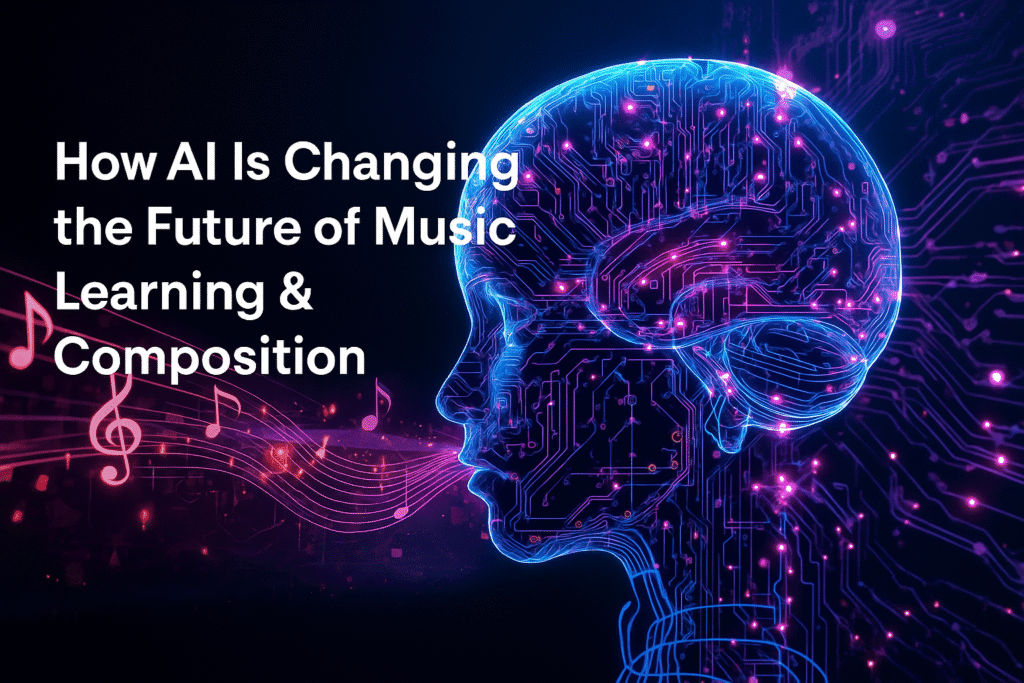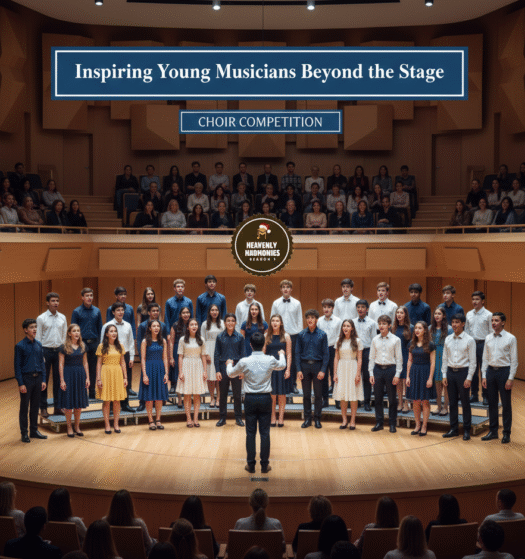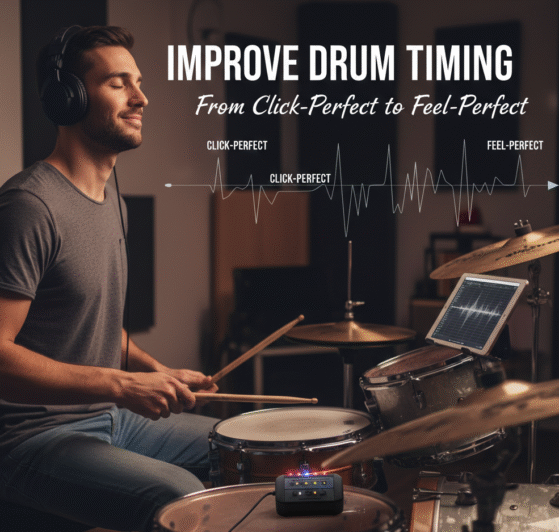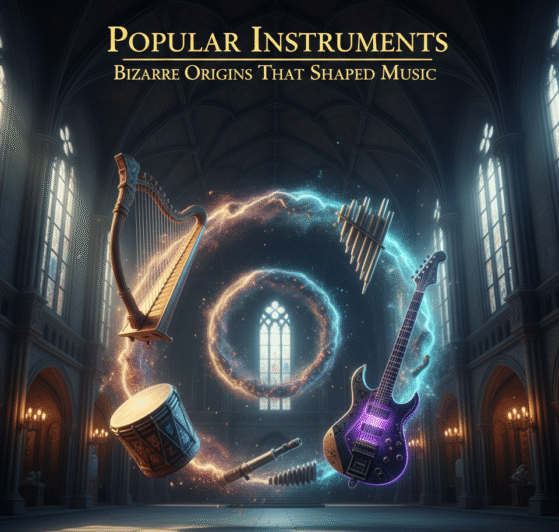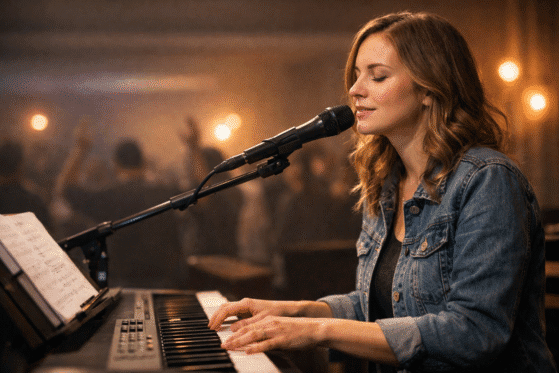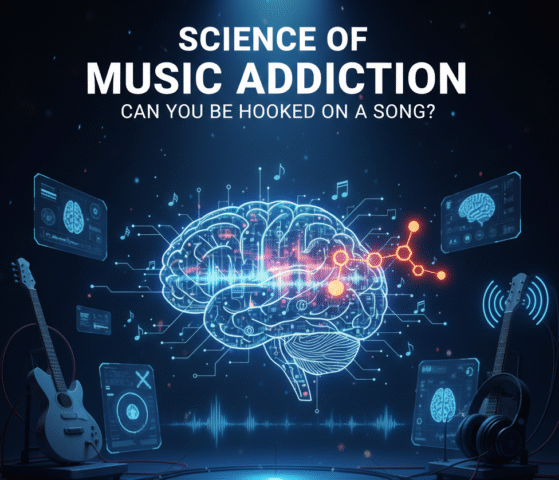How AI Is Changing the Future of Music Learning and Composition
1. A Brief Overture – The Rise of AI in Music
From the invention of the piano to the rise of digital recording, technology has always shaped the sound of every generation. Today, AI in music learning is taking center stage as the next big revolution in how we create and understand music.
Artificial Intelligence is no longer just analyzing sound — it’s creating it. Tools like OpenAI’s MuseNet and Google’s Magenta can compose in various styles, from classical symphonies to jazz improvisations, turning complex theory into instant inspiration.
But the story of AI in music learning began long ago. In 1956, the Illiac Suite became the first computer-generated composition, proving that machines could be creative partners. Since then, innovations like AIVA and Amper Music have evolved into tools that help musicians compose, mix, and master with incredible efficiency.
This rise of AI in music learning doesn’t replace human artistry — it enhances it. By analyzing patterns, guiding practice, and offering real-time feedback, AI helps students learn faster and explore sounds they might never have imagined. Just as synthesizers redefined music in the 20th century, AI is redefining creativity in the 21st.
At The Mystic Keys, we believe this evolution celebrates the perfect harmony between innovation and imagination — where technology empowers learning, and music remains deeply human.
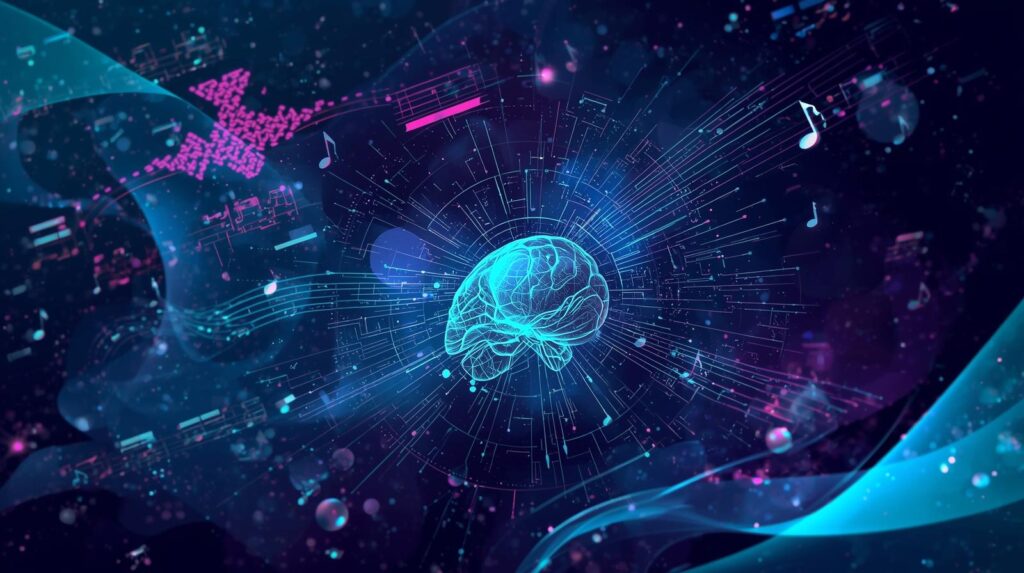
2. How AI Is Transforming Music Learning
Learning music has always been a deeply personal experience — every student learns at their own pace, in their own way. Now, Artificial Intelligence (AI) is making that personalization easier and smarter than ever.
AI-powered platforms like Yousician and Simply Piano can now listen to your playing in real time, analyze accuracy, and adjust lessons instantly. Missed a chord? The app slows it down. Nailed a melody? It levels up automatically. This makes learning more interactive, engaging, and rewarding — especially for beginners.
For teachers, AI acts as a helpful co-guide. It tracks progress, recommends exercises, and gives insights into where a student needs extra attention. At The Mystic Keys, we combine these intelligent tools with human mentorship — creating a perfect balance between technology and teacher guidance.
AI also makes practice more fun through gamified learning — turning scales, chords, and rhythm exercises into challenges and rewards. This keeps students motivated and consistent, which is the secret to real progress in music.
In short, AI is transforming music education from a routine into a personalized adventure — helping every student play, learn, and fall in love with music their own way
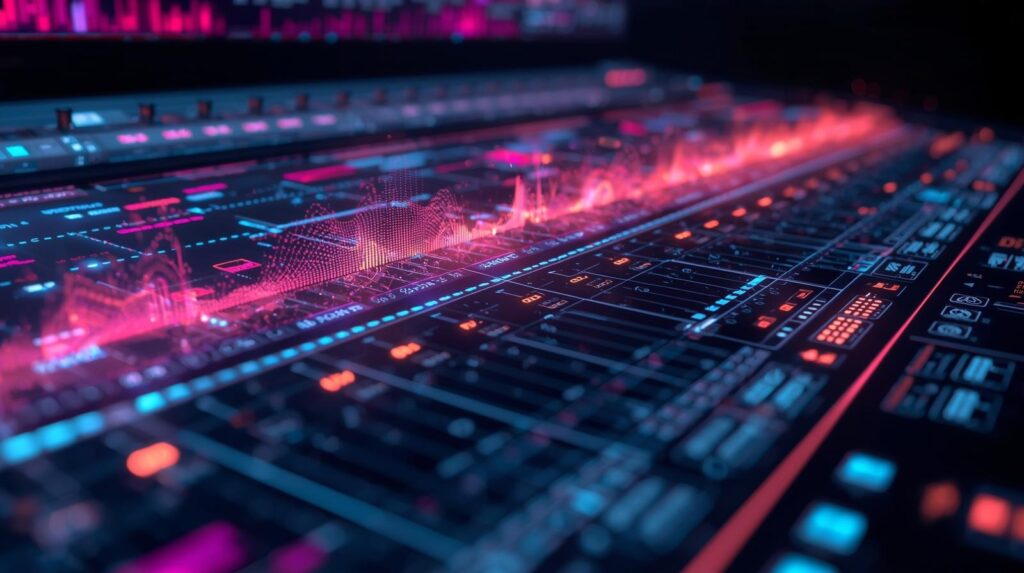
3. AI in Music Composition and Production
Once upon a time, composing a song meant sitting at a piano or guitar, scribbling notes on paper, and experimenting for hours. Today, AI tools are changing that process — not by replacing creativity, but by inspiring it.
Platforms like AIVA, Amper Music, and Soundful can now generate melodies, harmonies, and even full arrangements based on a few mood or genre choices. Want a soft piano ballad or an energetic electronic beat? AI can create both — in minutes.
Producers are also using AI in mixing and mastering. Services such as LANDR and iZotope Ozone help balance audio levels, enhance tone, and polish songs automatically, giving even home-recorded music a professional sound.
Far from replacing musicians, these tools free them to focus on creativity — letting artists spend less time on technical tweaks and more time crafting emotion and storytelling through sound.
At The Mystic Keys, we encourage students to explore these innovations — to learn how technology can expand imagination and make music creation more exciting than ever before.
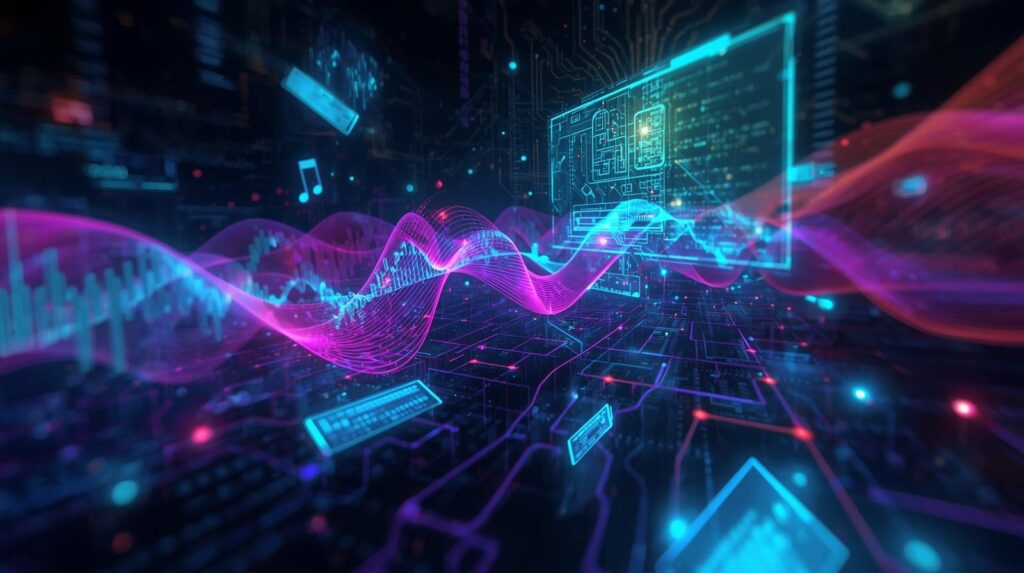
4. The Human Touch Still Matters
As impressive as AI is, music will always need something it can’t replicate — human emotion.
AI can analyze rhythm, harmony, and pitch with precision, but it doesn’t feel the sadness behind a minor chord or the joy in a soaring melody. Those emotions come only from human experience — from the stories, memories, and feelings that shape every note we play.
At The Mystic Keys, we see AI as a partner, not a replacement. Technology can teach timing, accuracy, and even style, but it’s the human heart that turns sound into soul. The small imperfections, expressive pauses, and personal touches in a performance are what make it beautiful.
As composer Claude Debussy once said, “Music is the space between the notes.” AI can fill the notes, but it’s humans who give meaning to the silence around them.
That’s why the future of music isn’t about machines versus musicians — it’s about humans and technology creating in harmony.
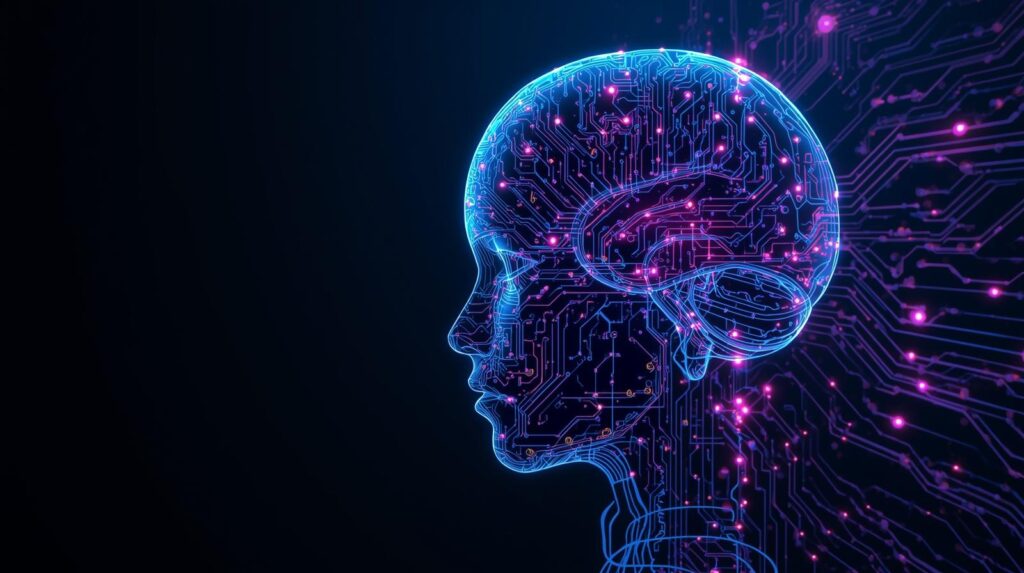
5. The Future Sounds Bright
The future of music is a beautiful duet between human creativity and artificial intelligence. From personalized learning to AI-assisted composing, technology is helping more people discover the magic of music than ever before.
Soon, we may see AI-powered virtual classrooms, real-time collaboration tools, and even emotion-responsive music systems that adapt to how you feel while playing. These innovations will make learning and creating music more interactive, inclusive, and inspiring.
But no matter how advanced AI becomes, music will always be a reflection of the human spirit. Technology can enhance it — but only people can give it heart.
At The Mystic Keys, we’re excited to be part of this new era — combining traditional teaching with smart technology to help every student explore their creative potential.
✨ The future of music is not about man or machine — it’s about both, in perfect harmony.
6. Looking Ahead — The Next Movement
As AI continues to evolve, the next decade will see music become even more interactive and personalized. Imagine AI tutors that adapt to a student’s progress in real time, or composition tools that instantly transform a melody you hum into a full arrangement.
For educators and creators alike, this technology won’t replace imagination — it will amplify it. Musicians will gain new ways to express emotion, learn faster, and collaborate beyond boundaries.
At The Mystic Keys, we believe the real magic of AI lies not in the code, but in how it connects human creativity with limitless possibility. The future of music isn’t just digital — it’s deeply human, enhanced by intelligent harmony.
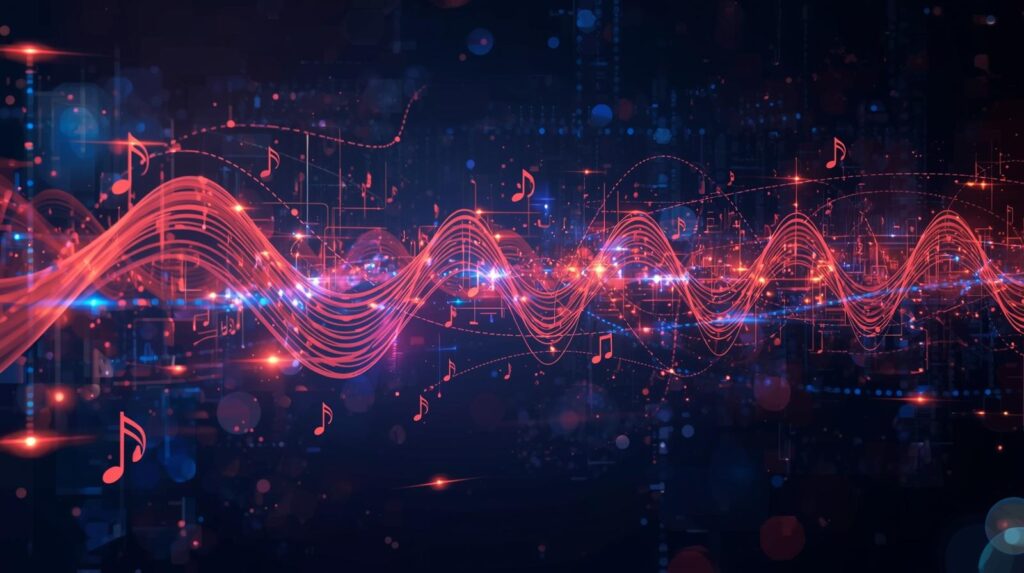
7. Join the Symphony of Tomorrow
The age of AI in music isn’t a distant dream — it’s already here, reshaping how we learn, create, and connect through sound. Whether you’re a beginner exploring your first melody or an experienced artist seeking new inspiration, AI offers a fresh way to experience the beauty of music.
At The Mystic Keys, we invite you to be part of this movement — where tradition meets technology, and creativity knows no limits. Learn to compose, perform, and innovate with tools that help you express your unique musical voice.
Because the future of music isn’t just being written by machines — it’s being composed by you.
🎇 Conclusion
AI has transformed music from something we only listen to into something we can co-create. From early algorithmic experiments to intelligent learning systems, the journey of AI in music mirrors our own — constantly evolving, always reaching for harmony between logic and emotion.
At The Mystic Keys, we see AI not as the future of music, but as its companion — a bridge that helps every learner, dreamer, and creator find their rhythm.
As the lines between human and machine creativity blur, one truth remains unshakable:
🎶 The soul of music will always be human — AI is just helping us play it in new ways.
Intersted in learning music with us? Register now
For more information and exciting resources about learning music, visit our website at The Mystic Keys. For more music content and exciting offers follow us on
Facebook, Instagram, YouTube, LinkedIn, Twitter, Pinterest, and Threads.


